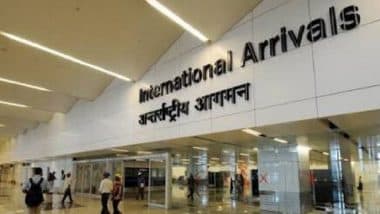New Delhi, April 25: The New York Times is under fire for referring to the perpetrators of the recent Pahalgam terror attack as “militants,” sparking outrage from the US House Foreign Affairs Committee. The attack, which killed 26 civilians, was claimed by a Pakistan-based terror group. The controversy has reignited debate over the distinction between “militant” and “terrorist” — terms with critical differences in meaning.
The attackers, reportedly from The Resistance Front — a Pakistan-based terror group and proxy of Lashkar-e-Taiba — allegedly asked victims to prove their allegiance to Islam before gunning them down. The committee, which oversees America’s foreign policy and security interests, condemned the NYT for using the term “militants” in its report, accusing the paper of misrepresenting the brutal nature of the assault.
The debate is more than just semantics — it touches on the broader issue of how acts of extreme violence are portrayed to the global public. Social media users argued that using the term “militants” instead of “terrorists” can dilute the severity and ideological motives behind such attacks. The criticism comes amid a wave of global solidarity with India, with US President Donald Trump reaching out to Prime Minister Narendra Modi, assuring full American support in combating terrorism. In a call, Trump reportedly affirmed that the US stands firmly with India and is ready to extend all possible assistance. Pahalgam Terror Attack: Houses of 2 Terrorists Demolished in Jammu and Kashmir’s Tral and Bijbehara, Video Surfaces.
NYT Faces US House Committee Backlash Over ‘Militant’ Label in Pahalgam Terror Attack Coverage
Hey, @nytimes we fixed it for you. This was a TERRORIST ATTACK plain and simple.
Whether it’s India or Israel, when it comes to TERRORISM the NYT is removed from reality. pic.twitter.com/7PefEKMtdq
— House Foreign Affairs Committee Majority (@HouseForeignGOP) April 23, 2025
Militants vs Terrorists: Know Definition and Meaning
The distinction between “militants” and “terrorists” lies in their intent and method. Militants are often part of internal armed rebellions with political or social aims, typically within a nation’s boundaries. In contrast, terrorists use violence strategically to spread fear and destabilise a society, often influenced or supported by external actors. India’s UAPA law and the FBI both emphasise the calculated use of violence by terrorists to instil terror and further ideological or political goals, whereas militancy does not inherently include the intention to terrorise civilians. Pahalgam Terror Attack News Update: 3 Pakistani Nationals, 2 Locals Among 5 Terrorists Identified Who Targetted Tourists in Jammu and Kashmir.
Meanwhile, in a strongly worded statement issued late Wednesday evening, India announced the effective downgrading of diplomatic relations with Pakistan, closure of key border routes, suspension of the Indus Waters Treaty, and the expulsion of Pakistani military attaches from its High Commission in New Delhi.
(The above story first appeared on LatestLY on Apr 25, 2025 03:54 PM IST. For more news and updates on politics, world, sports, entertainment and lifestyle, log on to our website latestly.com).













 Quickly
Quickly






















